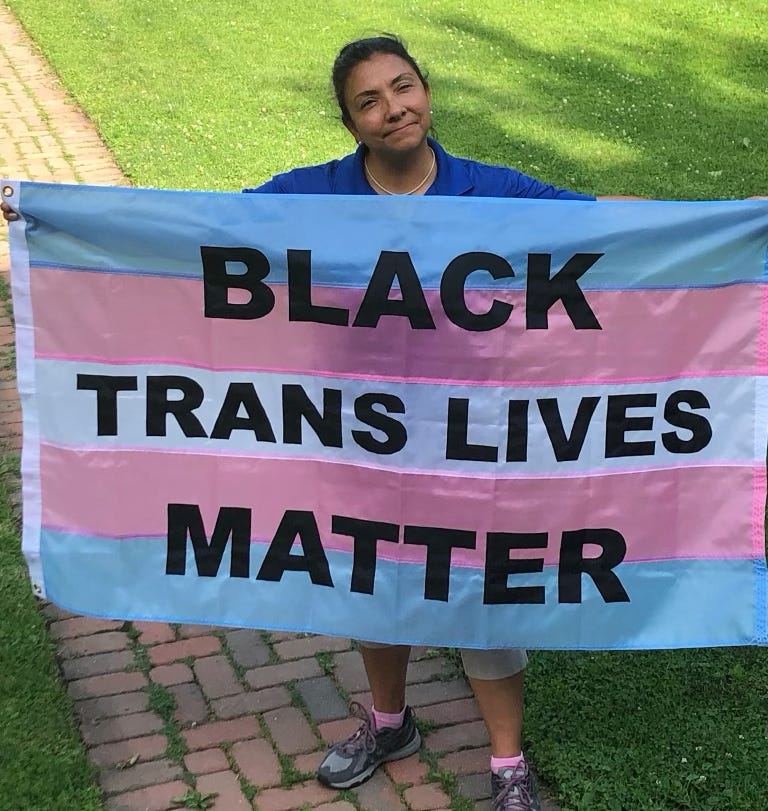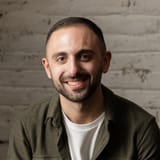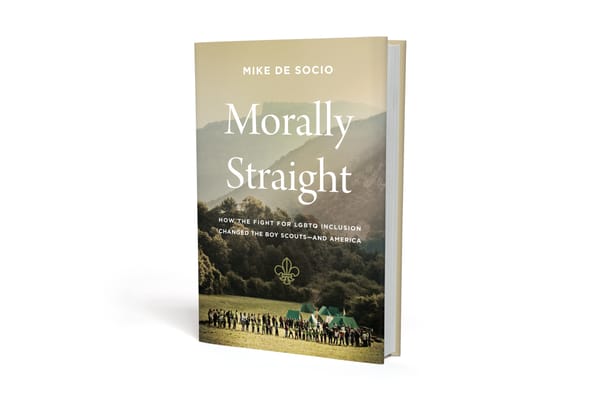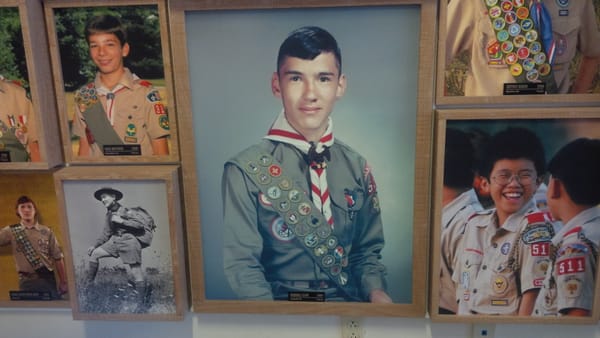'It is so important for straight people to fight for gay people'
Cate Readling had no intention of getting involved in Scouts for Equality. But when she learned about the BSA's anti-gay policy in 2012, she couldn't sit back and do nothing.
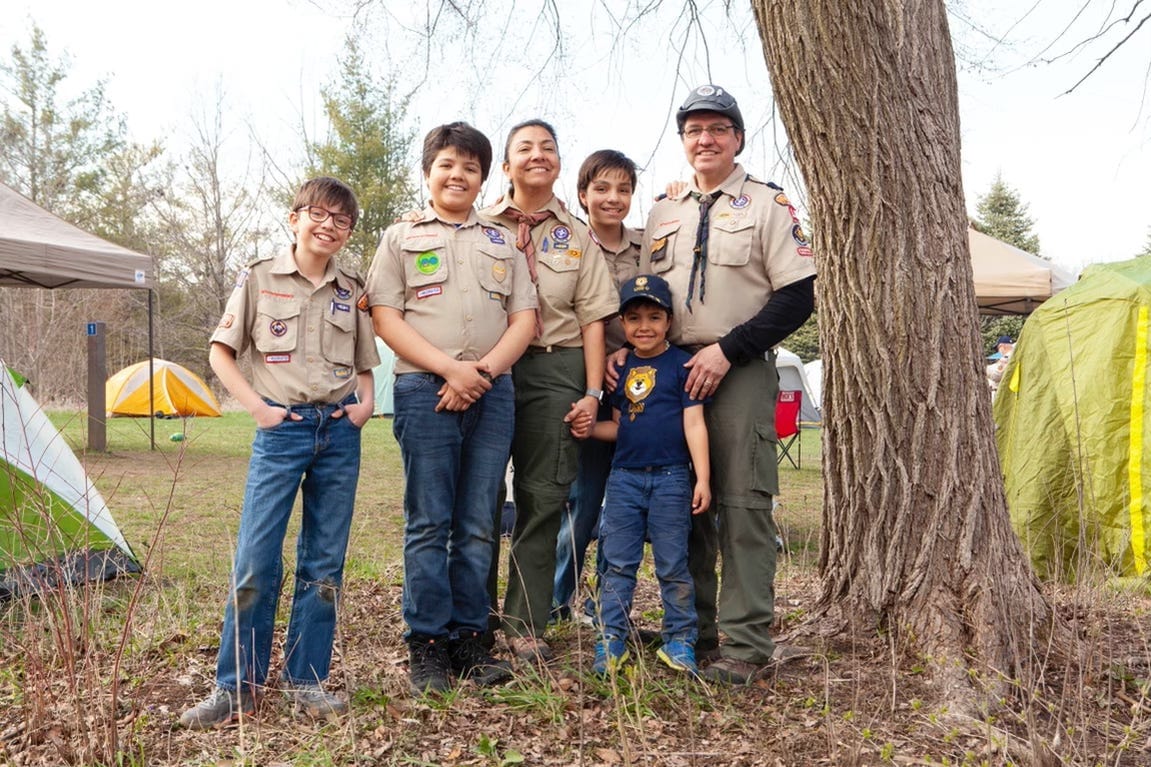
Cate Readling was on her way out the door, plopping her son in a stroller for a trip to the neighborhood pool. It was the summer of 2012, and just as she was heading out, Readling caught an NPR news bulletin that shocked her.
The Boy Scouts of America, after a two-year policy review, had decided to reaffirm its ban on gay members.
“I was like, what?” Readling recalls. Her first thought was that the Scouting community in her home of Oak Park, a progressive suburb of Chicago, couldn’t possibly hold the same views. But on her way to the pool she ran into a parent from her son’s Cub Scout pack; the mother was relieved to see the BSA would continue to exclude gay people.
When Readling’s husband, Chip, arrived home that night, she told him they could not participate in Scouts any longer. Chip knew she must have heard the news, and they both took time to process it.
Neither of them had even known the anti-gay policy existed before that day. It was understandable for Cate, who had only recently jumped into Scouting alongside her young sons. But Chip was an Eagle Scout, he had volunteered as an adult leader for years, and no one had ever told him.
Cate resolved to find an alternative program for her boys. She thought about bringing a 4-H unit to her community. But the more research she did, the more Readling saw Scouting as the best program, and also one whose discriminatory policy she could not stand for.
“It was antithetical to all the things that I was learning about Scouting. And so it seemed like, this is untenable,” Readling said.
A couple of weeks later, Readling and her family went to a 4th of July barbecue and saw two of their neighbors, who happened to be lesbian parents and had a son in Cub Scouts too. Readling and one of the parents, Mary, joined forces and formed one of the first local chapters of Scouts for Equality.
“I didn’t have any intention of getting involved,” Readling reflects now. But she couldn’t sit back and do nothing. She traces her passion for social justice work back to her upbringing as biracial woman in the south with “no access to my identity and my culture.”
“I identified with groups of people who are marginalized and disparaged and hurt. And it was just wrong. My knee-jerk reaction to hearing that NPR announcement about the study was just, this was wrong. Period,” Readling said.
Her experience at one of the first SFE gatherings fueled her dedication to changing the policy. She remembers walking into a room filled with men of all ages — from 18 to 80 — who cared about Scouting enough to come back and fight for it, even though they had been harmed by it.
“Despite all the pain and the trauma they had experienced, they loved this program enough to try to save it,” Readling said.
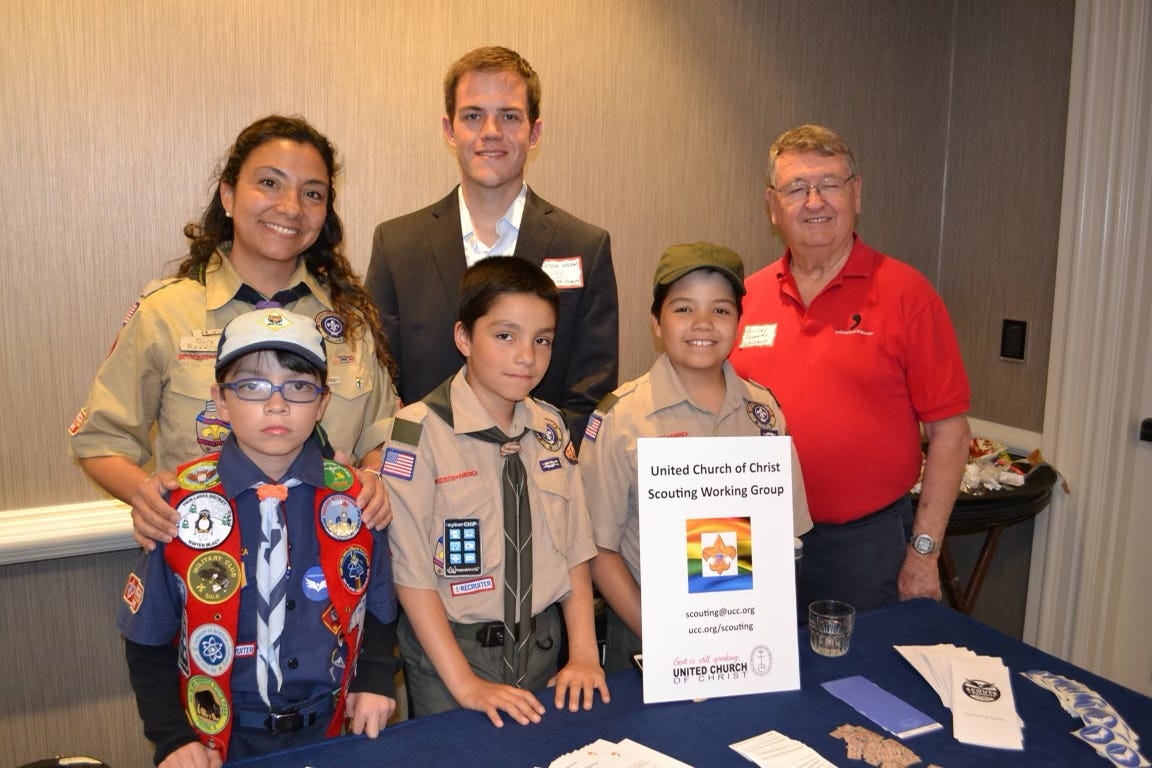
Running the SFE chapter was hard, often isolating work for Readling. She had never done any kind of political organizing before, and she was still getting up to speed on the nuances of sexual orientation and gender identity. She credits the national SFE staff for giving her the resources that made much of her work possible. And she said the monthly calls with SFE chapters from around the country were “life-giving.”
"We were all out there in the streets taking hits, and this was a place where we could get together and share stories and help each other,” Readling said.
Justin Wilson, who served as Scouts for Equality's executive director from 2015 until 2020 and was involved before that as a community organizer, said Readling’s initiative and enthusiasm was a huge boost to SFE’s grassroots efforts over the years.
“Her bubbly and outgoing personality makes her an expert at developing meaningful relationships. She is known to often be late to meetings because she got sidetracked talking to a random stranger, fitting in one more advocacy phone call, or taking a hungry stranger out for lunch,” Wilson said. “She moves easily in all circles of Scouting and has an ability to charm folks at any level.”
Readling’s activism in Scouting would often take her to Chicago Pride parades. In 2015, the parade took place just days after the Supreme Court had issued its decision on marriage equality — but still before the BSA had ended its ban on gay adult leaders. Readling was there with registered youth in uniform, but opted not to wear hers for fear of being kicked out.
By the 2019 parade, much had changed, and Readling showed up not only in uniform, but carrying the blue-and-pink trans pride flag with an embroidered message: “Black Trans Lives Matter.”
She also showed up to the protests over racial inequality that swept the country last summer. But she was particularly moved by an event this spring, when a 13-year-old boy named Adam Toledo was shot and killed by police in Chicago. Readling realized that the boy looked like her — that it could have been her.
“It’s something that you can’t know until you experience it, I think, to realize that it hits you differently. That it hits you differently. It was reinforced in me at the time why it is so important for straight people to fight for gay people. And for brown people to fight for Black people. And for white people to fight for Black people,” Readling said.
